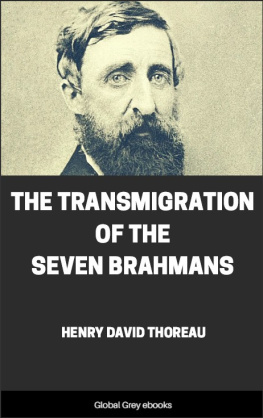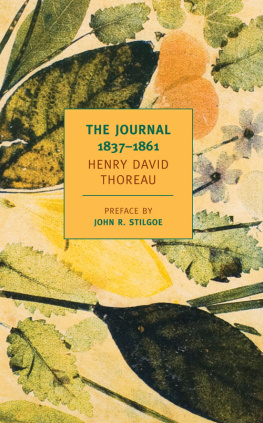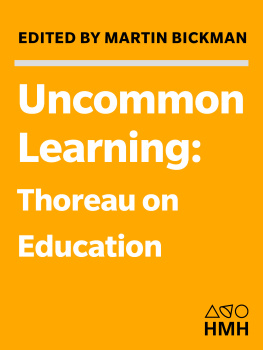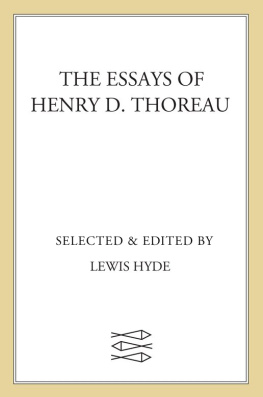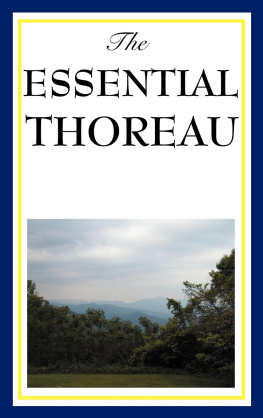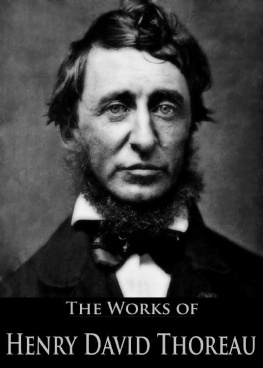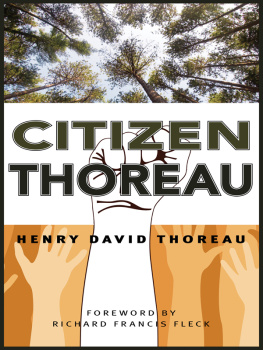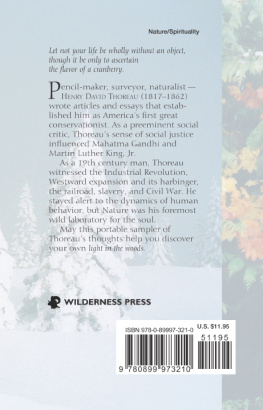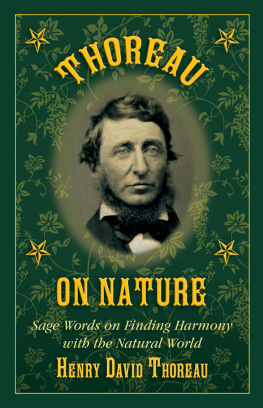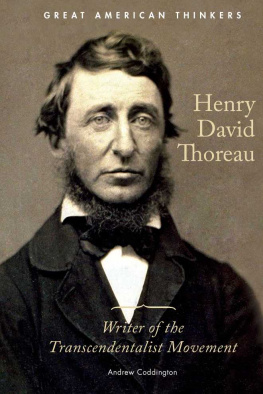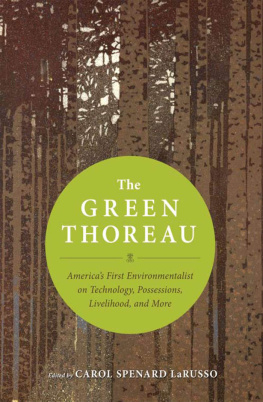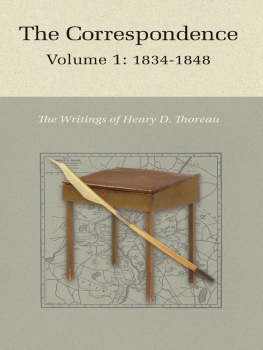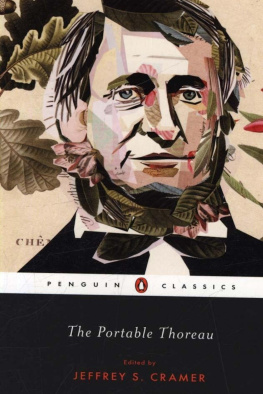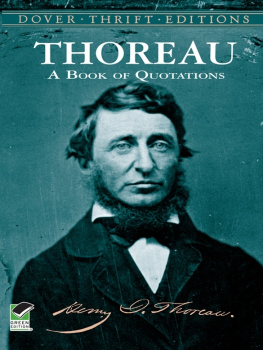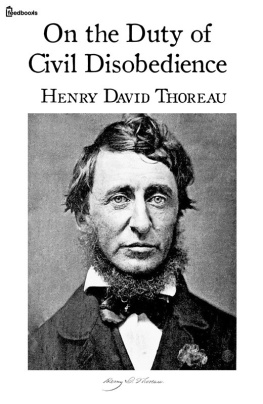Henry David Thoreau - The Transmigration of the Seven Brahmans
Here you can read online Henry David Thoreau - The Transmigration of the Seven Brahmans full text of the book (entire story) in english for free. Download pdf and epub, get meaning, cover and reviews about this ebook. year: 2018, publisher: Global Grey eBooks, genre: Religion. Description of the work, (preface) as well as reviews are available. Best literature library LitArk.com created for fans of good reading and offers a wide selection of genres:
Romance novel
Science fiction
Adventure
Detective
Science
History
Home and family
Prose
Art
Politics
Computer
Non-fiction
Religion
Business
Children
Humor
Choose a favorite category and find really read worthwhile books. Enjoy immersion in the world of imagination, feel the emotions of the characters or learn something new for yourself, make an fascinating discovery.
- Book:The Transmigration of the Seven Brahmans
- Author:
- Publisher:Global Grey eBooks
- Genre:
- Year:2018
- Rating:5 / 5
- Favourites:Add to favourites
- Your mark:
- 100
- 1
- 2
- 3
- 4
- 5
The Transmigration of the Seven Brahmans: summary, description and annotation
We offer to read an annotation, description, summary or preface (depends on what the author of the book "The Transmigration of the Seven Brahmans" wrote himself). If you haven't found the necessary information about the book — write in the comments, we will try to find it.
The Transmigration of the Seven Brahmans — read online for free the complete book (whole text) full work
Below is the text of the book, divided by pages. System saving the place of the last page read, allows you to conveniently read the book "The Transmigration of the Seven Brahmans" online for free, without having to search again every time where you left off. Put a bookmark, and you can go to the page where you finished reading at any time.
Font size:
Interval:
Bookmark:
THE TRANSMIGRATION OF THE SEVEN BRAHMANS
BY
HENRY DAVID THOREAU
1932
The Transmigration Of The Seven Brahmans By Henry David Thoreau.
This edition was created and published by Global Grey
GlobalGrey 2018

globalgreyebooks.com
THE manuscript and transcription of The Transmigration of the Seven Brahmans are here presented through the kind permission of Mrs. Flora Livingston, Custodian of the Widener Memorial Collection at the Harvard College Library. The introductory quotations from Thoreau's writings are used by permission of the Houghton Mifflin Company.
The editor has made no changes in the antiquated form of spelling Anglicized Sanskrit words used by Thoreau. In his own discussion the modern form is followed.
INTRODUCTION
THE fascination which the Orientals possessed for Thoreau is perfectly evident to the reader who skipped no pages in Walden and the Week. The sacred scriptures of the East held his attention through all his creative years, and their effect on his work is so patent that even those who have no eye for inner significance have noticed how interfused is his prose with imported quotations and figures. F. B. Sanborn writes in his biography of Thoreau that it was Emerson who first introduced him to the Orientals. The date is recorded as 1837. Thoreau's Journalsindicate that in August, 1838, he had been reading the Persian Zendavesta and Confucius, a fact which corroborates Sanborn. But the extravagant outpouring of praise for the Orientals does not fully commence until 1841. Between 1841 and 1843, it will be remembered, Thoreau lived with the Emersons and assisted his elder friend in the household tasks. There can be no doubt that he made free use of the library. The Journals for these years tell eloquently of the impression made by Emerson's Oriental books. After reading The Laws of Menu, he writes, "They are the laws of you and me, a fragrance wafted down from those old times, and no more to be refuted than the wind... I remember the book as an hour before sunrise." And in another instance he confides, "I cannot read a sentence in the book of the Hindoos without being elevated as upon the table land of the Ghauts."
There was no diminution in Thoreau's ardor for these mysterious books through the rest of his life. The joy he found in them during his last years was even greater than that of his first youthful discovery. The most important story connected with this Oriental interestthat of the Cholmondeley collectionshould be better known. Because of its immediate importance it may be related here.
In September, 1854, Thomas Cholmondeley, a friend of Arthur Hugh Clough at Oxford, came to Concord with letters which introduced him to Emerson. He wished to remain in Concord for a short period, but the Emersons were not able to accommodate him and he was sent to Mrs. John Thoreau, who took lodgers. The young Englishman was warmly welcomed by Thoreau's mother and an intimate friendship arose between the men. The visit was only too short. It was the time of the Crimean War; Cholmondeley went home to enlist. Just before sailing with his regiment he sent the following letter to his Concord friend:
October 3, 1855.
My dear THOREAU
I have been busily collecting a nest of Indian books for you, which, accompanied by this note Mr. Chapman will send you, and you will find them at Boston, carriage prepaid (mind that, and don't let them cheat you), at Crosby and Nichols! I hope, dear Thoreau, you will accept this trifle from one who has received so much from you, and one who is anxious to become your friend and induce you to visit England. I am just about to start for the Crimea, being a complete soldier; but I fear the game is nearly played, and all my friends tell me I am just too late for the fair. When I return to England, (if ever I do return) I mean to buy a little cottage on the south coast, where I can dwell in Emersonian leisure and where I have a plot to persuade you over.
* * *
Adieu, dear Thoreau, and immense affluence to you.
Ever yours,
THOS. CHOLMONDELEY
Sanborn records that the books arrived in Concord on November 3o, 1855, when he saw them, in the attic chamber where Thoreau kept his small library, in cases made by his own hands, not failing to mention that upon receiving the first announcement of their coming Thoreau had "fashioned for these treasures a new case, out of drift wood that he had brought home in his voyages along the Musketaquid, thus giving Oriental wisdom an Occidental shrine."
On December 9, 1855, writing to his friend H. G. O. Blake, Thoreau described the books in brief:
I have arranged my books in a case which I made in the meanwhile, partly of river boards. I have not dipped far into the new ones yet. One is splendidly bound and illuminated. They are in English, French, Latin, Greek and Sanskrit. I have not made out the significance of this godsend yet.
But by Christmas he had made out the significance of his godsend, for on that day he wrote to the Quaker Daniel Ricketson of New Bedford that he had received a royal gift in the shape of twenty-one distinct works (one in nine volumesforty-four volumes in all) almost exclusively relating to Hindoo literature and scarcely one of them to be bought in America. I am familiar with many of them and know how to prize them. I send you this information as I might of the birth of a child.
These books Thoreau cherished until the day of his death. After his decease, they passed into the hands of his friendsprincipally Emerson and Alcott.
II
IN the Widener Memorial Collection at the Harvard College Library is a large sheaf of miscellaneous manuscript pages in Thoreau's handwriting. There is neither beginning nor end to this material; it is a disorganized mass that would require much labor to collate. One gathers the impression that at one time these pages lay unprotected from a sudden gust of wind which entered the room and scattered them into confusion, only to be subsequently picked up haphazardly by a person utterly ignorant of their worth. In this material I found the manuscript of Thoreau's The Transmigration of the Seven Brahmans, kept intact by a pin which had been inserted in the margin.
The story is a translation from Langlois's French rendering of the Harivansa, a scholarly work of forbidding appearance that few men with only a superficial interest in Oriental legend and metaphysics would have tackled. The source was discovered solely through the labor of following all the dews the manuscript offered, and searching through every likely volume of Oriental literature to which I had access. There is no mention, so far as I am aware, of Langlois, the French Orientalist, in the works of any of the Concord writers. All dews as to the nature of the story were necessarily sought in internal evidence. The spelling of the Hindu proper names was in the French manner. This indicated that the source from which Thoreau procured these names was French. The second clew was the name Bharata, which indicated that the story was most likely allied in some way to the great Indian epic, the Mahabharata. The frequent and careful insertion of interlinear corrections by Thoreau, which can be readily discerned in the original long-hand draft of the story, leads to the question whether it might not have been an original composition. The content and the technical use of Sanskrit names, however, could scarcely have come from one uninitiated in the original language, unless he had undertaken laborious research in the work of European Orientalists. But Thoreau was a singular man and his manuscript baffled even several Orientalists whom I consulted. I cannot deny that I hoped to prove it an original composition, solely for the valuable evidence it would have given of the Oriental tang in his mind. But the discovery that the story was a translation from the French, on second thought rather adds to its value. It is the first extensive evidence I have seen of Thoreau's proficiency in French. And its Oriental value, particularly as evidence of his interest in an extensive system of Hindu ascetic practicethe Yogabecomes the more significant in view of the confession he made to Blake of the true purpose of his life. The Walden years, also, may be viewed from another angle, for although Thoreau made his translation in 1849 or 185o, when he drew on the Harvard College Library for many Oriental volumes, among them being the
Next pageFont size:
Interval:
Bookmark:
Similar books «The Transmigration of the Seven Brahmans»
Look at similar books to The Transmigration of the Seven Brahmans. We have selected literature similar in name and meaning in the hope of providing readers with more options to find new, interesting, not yet read works.
Discussion, reviews of the book The Transmigration of the Seven Brahmans and just readers' own opinions. Leave your comments, write what you think about the work, its meaning or the main characters. Specify what exactly you liked and what you didn't like, and why you think so.

